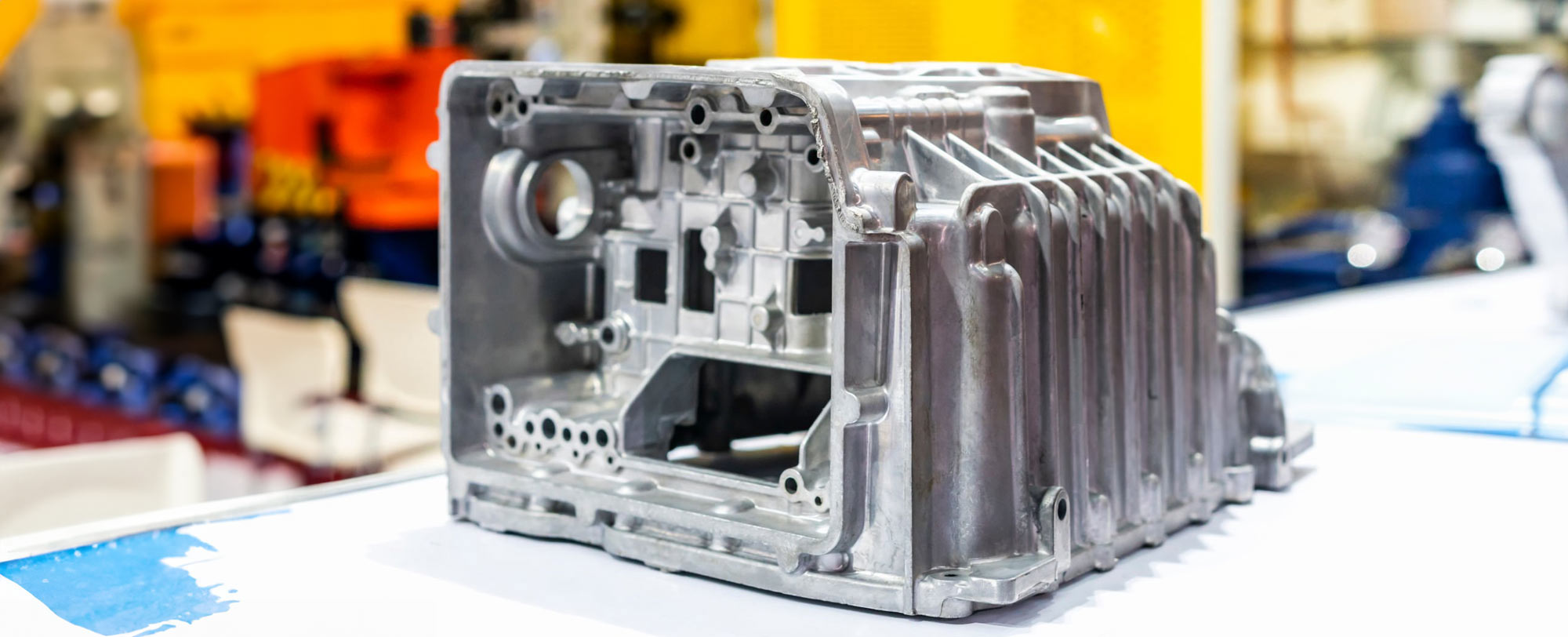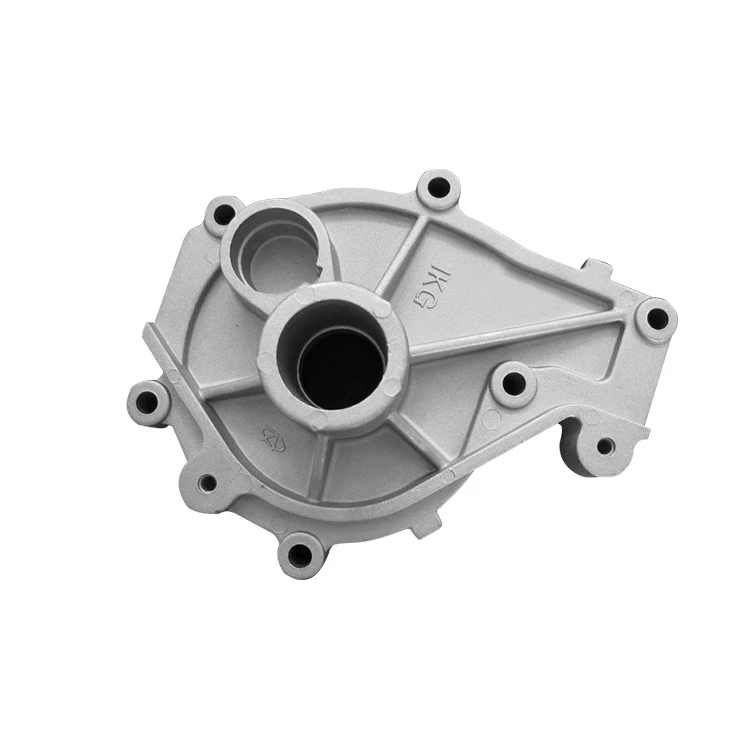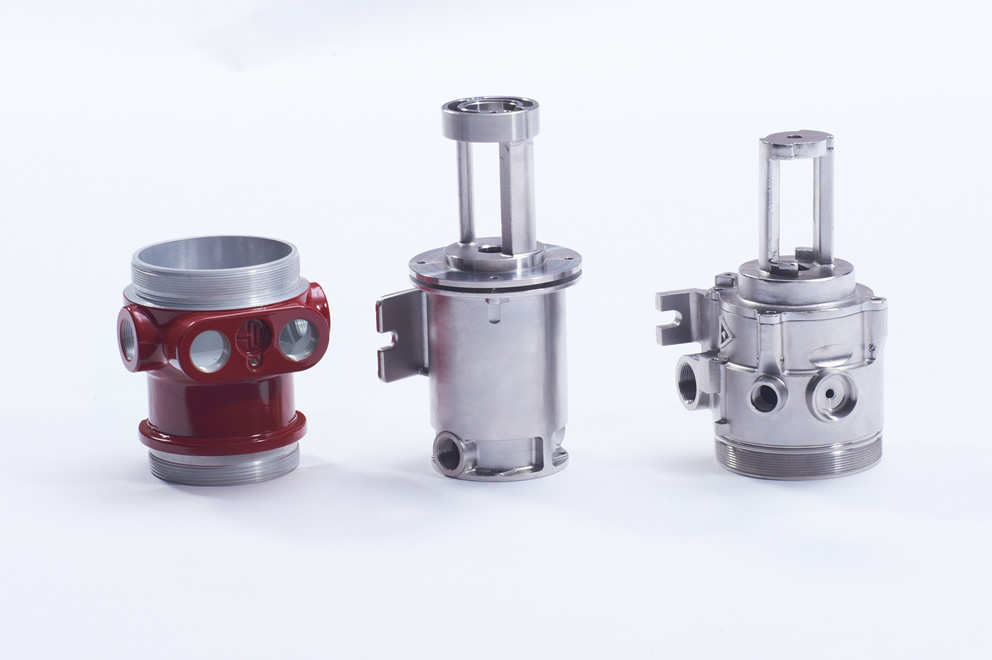The Function of Light Weight Aluminum Foundries in Advancing Lightweight Production Solutions
Aluminum foundries substantially add to the development of light-weight production options. Their ingenious casting modern technologies generate high-strength, lightweight elements necessary for markets like automobile and aerospace. This advancement not only improves product performance yet also advertises sustainability with using recycled materials. As these foundries adjust to emerging technologies and practices, they pave the method for future developments in manufacturing performance and environmental obligation. What lies in advance in this transformative trip?
The Advantages of Lightweight Materials in Production
As sectors significantly look for effectiveness and sustainability, the fostering of light-weight materials in manufacturing has actually become a vital approach - Aluminum Casting Company. These materials, specifically light weight aluminum and composites, supply numerous benefits that enhance production procedures and product efficiency. Mostly, their decreased weight contributes to decrease energy usage during transport and operation, resulting in significant price financial savings
Light-weight materials help with the layout of more complicated geometries, enabling for better technology in item growth. This adaptability frequently causes boosted capability and performance, providing to the developing demands of modern-day consumers.
Furthermore, using light-weight products can improve the long life of items because of their resistance to corrosion and fatigue. This durability not only decreases maintenance expenses yet likewise sustains sustainability initiatives, as longer-lasting products add to much less waste. To summarize, the benefits of light-weight materials are crucial in driving efficiency, advancement, and ecological obligation in manufacturing.
Advancements in Aluminum Spreading Technologies
Recent advancements in aluminum spreading technologies are transforming the manufacturing landscape, specifically in the manufacturing of lightweight parts. Developments such as high-pressure die casting and vacuum pass away spreading have actually substantially enhanced the precision and surface finish of light weight aluminum parts - Aluminum Casting Company. These approaches permit the development of intricate geometries while decreasing material waste and boosting mechanical buildings

Furthermore, the execution of real-time surveillance systems guarantees quality control throughout the spreading process, resulting in more regular item results. Jointly, these innovations not only boost the efficiency of aluminum elements however also support the industry's change in the direction of more sustainable manufacturing practices.
Applications of Light Weight Aluminum Components in Various Industries
While light weight aluminum parts have long been utilized in different sectors, their flexibility and light-weight residential or commercial properties remain to drive innovative applications throughout fields such as auto, aerospace, and building. In the auto sector, light weight aluminum is progressively utilized for engine blocks, wheels, and body panels, enhancing gas performance and efficiency. Aerospace manufacturers take advantage of light weight aluminum for airplane structures and components, taking advantage of its strength-to-weight ratio to boost fuel economy and payload capability.
In the construction field, aluminum is favored for home window structures, roofing, and structural aspects, giving longevity and resistance to corrosion while decreasing overall structure weight. Additionally, the electric and electronic devices industries gain from aluminum's conductivity and light-weight nature, using it in wiring, units, and warm sinks. These varied applications highlight the crucial function of aluminum parts, which not only satisfy industry demands yet likewise add to advancements in item style and capability throughout several areas.
Sustainability and Energy Efficiency in Light Weight Aluminum Foundries
The light weight aluminum foundry sector plays an essential function in advertising sustainability and energy performance, especially as demand for lightweight elements continues to grow across numerous industries. Foundries are progressively adopting environmentally pleasant methods, such as using recycled light weight aluminum, which greatly lowers power intake and greenhouse gas discharges compared to primary light weight aluminum production.
Advancements in casting modern technologies boost power effectiveness by optimizing why not try this out the melting processes and decreasing waste. Methods like die casting and financial investment spreading enable specific material use, decreasing excess and scrap.
In addition, lots of factories are spending in renewable energy resources to power operations, additionally reducing their carbon impact. Executing power administration systems allows factories to check and boost energy usage, ensuring they run at peak effectiveness.

Future Patterns in Lightweight Manufacturing Solutions
Just how will arising technologies form the future of lightweight production solutions? Advancements such as advanced materials, automation, and additive production are established to redefine production processes. The assimilation of smart manufacturing modern technologies, consisting of the Internet of Things (IoT) and expert system (AI), will certainly enable real-time surveillance and optimization, boosting performance and reducing waste.

As sustainability continues to be an extremely important concern, lightweight solutions will increasingly focus on recycling and reusing products, lining up with round economic situation principles. This development in lightweight production will certainly not just boost product performance yet likewise add to environmental objectives, making sure that the market continues to be affordable in a quickly changing market landscape.
Frequently Asked Concerns
Just How Do Light Weight Aluminum Foundries Guarantee Quality Control in Production?
Light weight aluminum foundries guarantee quality assurance in manufacturing with strenuous testing, standard procedures, and continual monitoring - aluminum casting. They apply skilled employees and sophisticated innovations to preserve uniformity, minimize defects, and satisfy industry requirements throughout the production procedure
What Are the Key Tests Faced by Aluminum Foundries?
Light go right here weight aluminum shops face obstacles such as changing raw material prices, maintaining production effectiveness, making sure consistent high quality, adjusting to technological advancements, and conference ecological policies, all of which impact their total operational efficiency and competitiveness in the marketplace.
Just How Does Aluminum Recycling Effect Shop Procedures?
Aluminum recycling substantially enhances foundry operations by decreasing raw material prices, minimizing energy consumption, and reducing ecological impact. This lasting technique enables factories to boost performance while satisfying boosting need for lightweight, high-performance light weight aluminum items.
What Skills Are Needed for Workers in Light Weight Aluminum Foundries?
Employees in light weight aluminum foundries call for abilities in metallurgy, machining, quality assurance, and safety techniques. Efficiency in running equipment, recognizing alloy homes, and analytic are likewise vital for reliable production and preserving high safety standards.
Just How Do Light Weight Aluminum Foundries Take Care Of Waste Monitoring?
Aluminum foundries manage waste via reusing scrap metal, making use of effective waste segregation techniques, and sticking to environmental policies. They carry out lasting methods to reduce land fill payments, making certain that dangerous products are thrown away responsibly.
Light weight aluminum shops substantially contribute to the advancement of light-weight manufacturing options. Current developments in aluminum casting technologies are reinventing the manufacturing landscape, especially in the production of lightweight parts. While aluminum elements have actually long been utilized in numerous sectors, their convenience and lightweight homes continue her latest blog to drive ingenious applications across sectors such as automotive, aerospace, and building and construction. In addition, the electrical and electronics sectors benefit from light weight aluminum's conductivity and light-weight nature, utilizing it in circuitry, enclosures, and warmth sinks. The aluminum shop industry plays a vital role in advertising sustainability and energy performance, especially as demand for light-weight components continues to expand across various sectors.